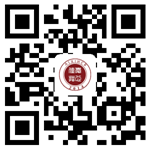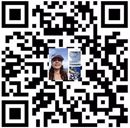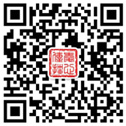| Dear Students, Faculty, Staff and Families: This week, we will mark two milestones in our collective efforts to sustain Syracuse University’s residential campus in the face of the COVID-19 health emergency. The first is to record the 50,000th COVID test conducted on this campus since the start of the semester. The second is turning the page on the calendar to the month of October. These two milestones are inherently connected. The significant level of testing and ongoing virus surveillance on our campus—combined with the extraordinary buy-in on the part of our students, staff and faculty to uphold our COVID-prevention protocols—is very specifically the reason we’re able to welcome the month of October together on campus. As we look ahead, we must remain ever vigilant of the threat that COVID-19 represents to our individual and collective safety and well-being. That threat is heightened by the approaching flu season. A concurrent outbreak of two respiratory illnesses (influenza and COVID-19) on our campus could have devastating consequences for individual and community health, make COVID-19 cases more challenging to detect and diagnose, and also potentially overwhelm the capacity of the local health care system. That is why, in June, the University’s public health committee included in the Syracuse University SAFE COVID Response Plan a formal recommendation that all members of the Syracuse University campus community receive a flu vaccination. The University has acted on that recommendation and throughout the month of October, we will offer no-cost flu shots to all members of our campus community. In addition to information about the upcoming flu shot clinic, in this message I will also provide updates related to: - Revisions to the COVID Dashboard and Daily Tracking
- Expanded Surveillance Testing
- Next Round of Student Testing
- Stadium Testing Center
- Revisions to Isolation and Quarantine Protocols
- Flu Shot Clinic
- Weekend Activities
Revised Dashboard and Daily Tracking: Over the last several weeks, I have received feedback and suggestions from members of our community related to how we could enhance the readability and visual presentation of the COVID-19 dashboard. Many of you have requested more frequent dashboard updates. In response to this feedback, we recently refined the dashboard to make it easier to understand and more “mobile friendly.” We are also moving from updating the dashboard three times per week, to now updating the dashboard seven days a week, no later than 5 p.m. every day. Please continue to regularly visit the Syracuse University COVID-19 Dashboard to get the most up-to-date information about positive tests and active cases at Syracuse University. Surveillance Testing; Student, Faculty and Staff Participation: Beginning tomorrow, Sept. 30, our ongoing virus surveillance testing program will transition from repeated testing of all students, to large-scale “freedom from disease” sampling of the student population. Faculty epidemiologists from the Falk School have designed this freedom from disease sampling protocol that is based on randomized ongoing testing of students. The protocol also opens the University pooled salvia surveillance testing to faculty and staff participation. Additional logistical details related to this next phase of our surveillance testing program will be shared in a subsequent message. However, beginning tomorrow, faculty and staff who wish to participate in COVID screening may visit the screening location on the Quad weekdays between 10 a.m. to 4 p.m. The test we are offering is a pool saliva test, created by SUNY Upstate Medical University and approved by the Food and Drug Administration. Negative test results will be communicated via email and any individual who tests positive for COVID-19 will be notified via a direct phone call. Next Round of Student Testing: And while we have transitioned our virus surveillance testing program to large-scale “freedom from disease” sampling that does not mean we are finished with all-student testing. In fact, the current plan is for at least two more rounds of testing the entire student population. Specifically, we plan to hold our next round of mandatory testing for all students in late October. We are finalizing details now, including the schedule, and will share this with our community shortly. In addition, we will also plan to test all students shortly before we conclude the residential semester on Nov. 24. You might ask why we would test all students just days before they depart campus for the winter break? We plan this testing to safeguard the families of our students—and the communities our students call home—by ensuring that COVID-positive students are not unknowingly leaving our campus and putting others at risk. Stadium Testing Center: As we enter the cooler, snowier months in Syracuse, we will soon be opening a permanent, indoor testing location at the Stadium. This location will be available for students, faculty and staff. Further details on opening date and hours will be communicated soon. Isolation and Quarantine Protocol: Through our testing and contact tracing efforts, as well as our students’ diligence in recognizing and reporting signs and symptoms of COVID-19, Syracuse University has swiftly moved students into isolation and quarantine when needed. Over the last few weeks, we have heard from students in isolation and quarantine, as well as parents and family members, about the experience, communication and facilities. This feedback has been important to evolving our processes and resources to better meet the needs of our students and families. We appreciate your candid feedback and have made changes to address concerns, some of which are outlined below. In an effort to educate the campus community about the isolation and quarantine procedures, I am sharing brief overviews about the isolation and quarantine process at Syracuse University. Isolation: Students who test positive for COVID-19 are required to isolate for 10 days. If a student opts for University-provided isolation accommodations, they can be relocated by medical transport to Skyhall for their isolation period. Students also have the option of isolating in their off-campus housing based on their living circumstances. For those in University-provided isolation accommodations, here are some components about the isolation experience: - Each student will receive a complete Isolation Resource Guide that details the isolation process, procedures and resources.
- A medical provider from the Barnes Center at The Arch will be in contact with the student daily to check in on their health and well-being.
- A Syracuse University staff member will serve as the student’s “pod leader,” providing support and answering questions. The Dean of Students Office will also provide support.
- Three meals are provided each day and delivered directly to Skyhall. The Food Services team will accommodate any dietary restrictions, allergies or special requests.
- Students can have outside food delivered to Skyhall between 10 a.m. to 8 p.m., so long as they pay for their food (and any tip) online.
- Laundry services are available for free on every floor of Skyhall.
- A tent located outside Skyhall is available for students to schedule outdoor time for activities and exercise.
- Students can receive packages from roommates, friends, family and faculty dropped off at Skyhall or mailed to Goldstein Student Center. The Bookstore can also make deliveries of items ordered or sent from family.
- A support group for parents/families with students in isolation is being offered by the Barnes Center at The Arch.
Quarantine: Students who have been in close contact with someone known to have COVID-19, even if they do not have symptoms, need to quarantine for 14 days. Close contact means sharing the same household, direct physical contact or being within 6 feet for more than 10 minutes. If a student opts for University-provided quarantine accommodations at the Sheraton Syracuse University Hotel & Conference Center, they will be relocated by medical transport. Students also have the option of quarantining in their off-campus housing based on their living circumstances. For those in University-provided quarantine accommodations, here are some components about the quarantine experience: - Each student will receive a complete Quarantine Resource Guide that details the quarantine process, procedures and resources.
- Lodging at the Sheraton Syracuse University Hotel & Conference Center and three predetermined meals are provided to students for free.
- A student contact tracer will be in touch with the student daily to check in on them.
- A Syracuse University staff member will serve as the student’s “pod leader,” providing support and answering questions. The Dean of Students Office will also provide support.
- Students can have outside food delivered to the Sheraton Syracuse University Hotel & Conference Center between 8 a.m. to 8 p.m., so long as they pay for their food (and any tip) online.
- Students can receive packages from roommates, friends, family and faculty dropped off or mailed to the Sheraton Syracuse University Hotel & Conference Center. The Bookstore can also make deliveries of items ordered or sent from family.
- A support group for parents/families with students in quarantine is being offered by the Barnes Center at The Arch.
Flu Shot Clinic: As Chancellor Kent Syverud reported during the Sept. 23 University Senate meeting, we need our community—students, faculty and staff—to get their flu shots this year, unless you have a compelling religious or medical exemption. Beginning Oct. 5, flu shots will be available, at no cost to you, at two locations: the Stadium and the Skybarn on South Campus. We will be sharing more information within the next few days, including the flu shot clinic schedule, how to submit exemption requests, how to sign up for a vaccination and how to submit proof of vaccination if you have already received one from another provider. Weekend Activities for Students: As a reminder, it is critically important that our students remain in Central New York. Equally important is that families and friends from out of town avoid traveling to the area. Combined, these two practices help prevent COVID-19 from being brought to our community. To facilitate safe and fun weekend activities, the University continues to update its events calendar with all kinds of activities and events, such as movie screenings, apple picking, fire pits and s’mores, glow skate and so much more. I remain proud of the way our community continues to take action—individually and collectively—to keep our students, faculty, staff and neighbors safe and healthy. As I’ve said before, there’s no playbook for operating a large research institution in the midst of a global pandemic. We have learned a lot over the past five weeks, and I deeply appreciate the thoughtful and constructive feedback received from many in our community. We are applying that feedback and evolving our practices every day. Please continue to share your input and suggestions. Stay well. Stay safe. Take care of yourself and each other. Sincerely, J. Michael Haynie
Vice Chancellor for Strategic Initiatives and Innovation | 



